Fault lines that stoked the Gulf crisis
In early June, Saudi Arabia and other countries cut off diplomatic ties with Qatar

The writer studied Middle East politics at the American University in Cairo
moazzamhusain@gmail.com
Confounded by the complexity of the nature of conflicts across the Middle East there’s a tendency for most Pakistanis to turn to conspiracy theories. Instead, the most plausible framework to interpret these events is the prism of religious ideology. And the reason for this is simple: the foremost challenge to incumbent regimes is from competing religious ideologies and not from power politics, oil politics or the Arab-Israeli dispute. The actions of these regimes are driven more by fear than by opportunity. Above all is their need for survival.
Viewed from that standpoint, it would appear that the sectarian schism is the primary and more visible fault line, a religious rivalry that extends deep into the vault of Islamic history. The clergies on both sides of the Persian Gulf wield substantial authority and both the Iranian and Saudi political regimes owe their ‘legitimacy’ and survival to their religious establishments.
Yet, even as that rivalry plays out in Iraq, in Syria and Lebanon, in Yemen and other theatres, the two have not severed diplomatic links nor imposed a land, sea and air blockade on the other. That rivalry falls almost exclusively in the realm of power politics and is not a huge domestic worry for either regime.

On the other hand, there is a less obvious fault line, one that has become particularly worrisome following the events of the Arab Spring and that is at the heart of the present crisis. While both are modern fundamentalist movements Wahhabism and the Muslim Brotherhood differ along a key ideological axis. Wahhabism looks towards a strong central authority to oppose innovation and enforce a strict moral code. It is essentially reactionary.
The Muslim Brotherhood uses grassroots activism towards achieving social and economic justice. It is essentially progressive. One is top down where the state is an adjunct of religion. The other is bottom up, focused on educational programmes and social services with the more distant goal of participating in electoral politics.
The Saudi rulers are deeply suspicious of the Brotherhood’s political and social mobilising capacity. It feels that would be a destabilising influence and pose a challenge to its status as the Custodian of the Two Holy Mosques and finds Qatar’s support of the Muslim Brotherhood unpalatable. So how deep is this compulsion for Qatar? Foreign policy, after all, is an extension of domestic policy. And the Brotherhood has no domestic roots in Qatar which in fact allows no political activism of any kind. Neither does the country have a strong clergy like Saudi Arabia. This is just a small country trying to punch above its weight and project power in the playing field of the Arab Spring.
A recalcitrant Qatar is also posing a challenge to Saudi efforts to coalesce the region to pose a unified front against Iran. Qatar and Iran share the same gas field and are tied in a working relationship. While Qatar may be able to yield on support for the Muslim Brotherhood, it could yield less here. By all indications the Qatar regime will stay; it will likely even soften its stance on the Muslim Brotherhood. With that the crisis may resolve soon. Perhaps the words of Turkish Foreign Minister Mevlut Cavusoglu provide an insight into how this will happen: “Although the [Saudi] Kingdom is a party in this crisis, we know that King Salman is a party in resolving it. We want to hear the views of Saudi Arabia regarding possible solutions and will share with them our views in a transparent way ...”
As for Pakistan, our stakes with Saudi Arabia and the UAE are substantial. This means a policy of neutrality but perhaps more ‘neutral’ on one side than the other. Saudi Arabia is a country that has also strongly diplomatically supported Pakistan at all forums. Pursuing neutrality should not come at a cost to us. We have very few diplomats that are experts on the Middle East and the ones that are may not be able to convey these intricacies to the political and military leaderships.
Finally, while there may be other things wrong with General (retd) Raheel Sharif’s presence in Saudi Arabia as head of the Islamic Military Alliance but — and this may sound counter-intuitive — it has little bearing on the present standoff. Our response should be based on practical as opposed to moral or ideological considerations. That’s what the government seems to be doing and with small fine tuning, Pakistan must stay that course till the maelstrom is over which it will soon be.
Published in The Express Tribune, June 22nd, 2017.
Like Opinion & Editorial on Facebook, follow @ETOpEd on Twitter to receive all updates on all our daily pieces.







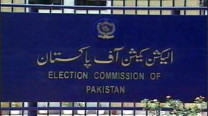
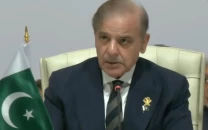
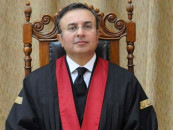

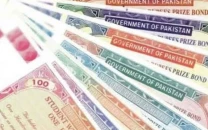
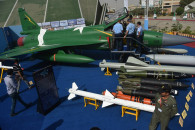


COMMENTS
Comments are moderated and generally will be posted if they are on-topic and not abusive.
For more information, please see our Comments FAQ